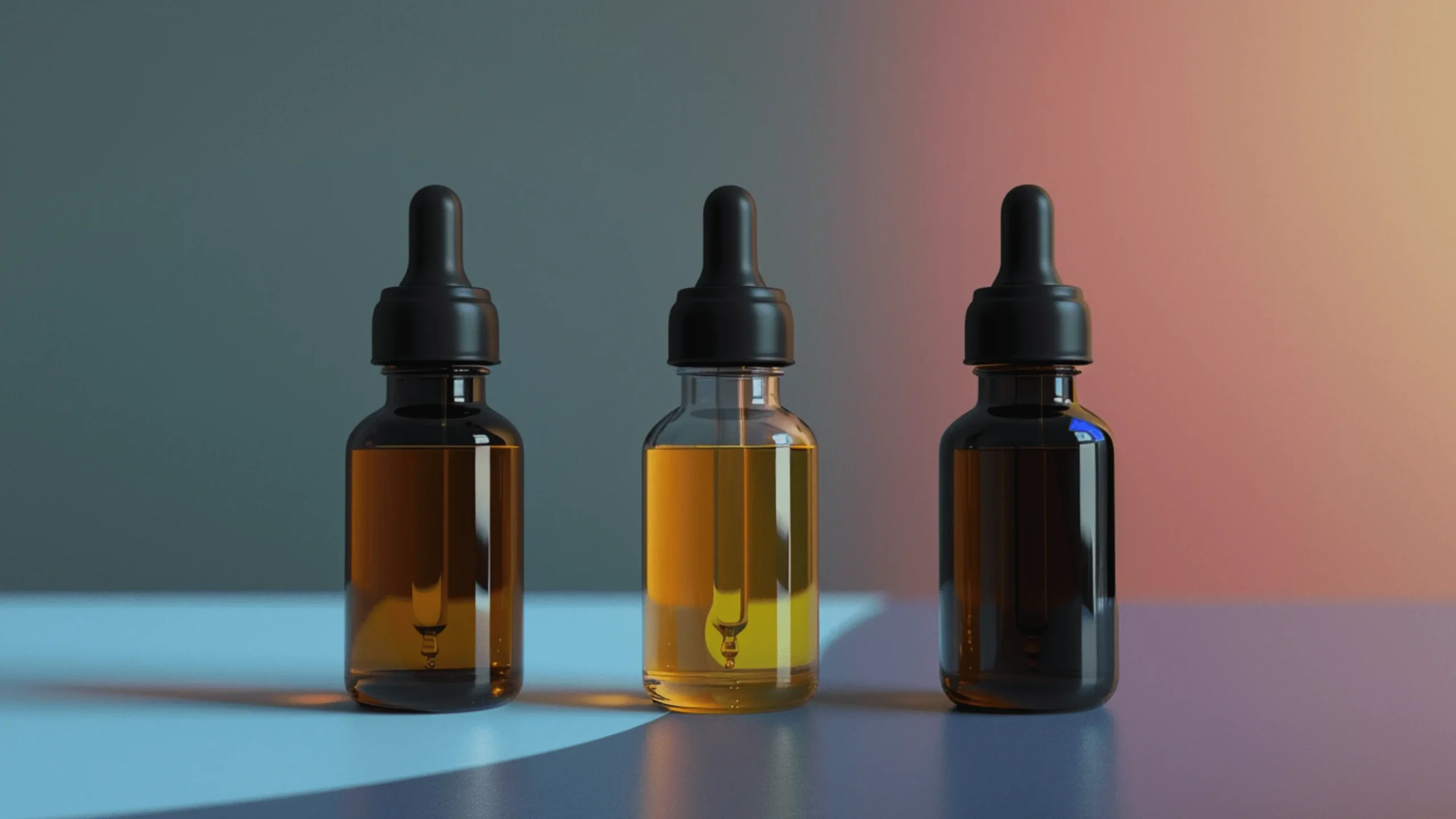The benefits of CBD are diverse, ranging from managing insomnia, chronic pain and reducing inflammation to alleviating symptoms of migraines, epilepsy, autoimmune diseases, depression, and anxiety. Although research is still ongoing to fully understand all the benefits of CBD, current studies suggest significant health potentials. When CBD is consumed, whether in capsules, tinctures, or edibles, it interacts with the body’s endocannabinoid system (ECS), which is responsible for various bodily functions – from mood regulation to immune response.
CBD, short for cannabidiol, is a naturally occurring compound found in both cannabis and hemp plants. CBD’s non-psychoactive properties separate it from THC, another compound from the cannabis plants, known for its mind-changing effects.
For those wanting to succeed in the fast growing CBD market, understanding and communicating the benefits of CBD effectively is essential. By understanding the wide range of health issues CBD can solve, businesses can take advantage of the growing demand for CBD products.
What is CBD (Cannabidiol)?
CBD stands out among over 100 cannabinoids (compounds found in the hemp plant) due to its many health benefits. As a major phytocannabinoid (cannabinoid that occurs naturally in the hemp plant), CBD composes up to 40% of the plant’s extract and is well-known for its ability to interact with the endocannabinoid system’s receptors throughout the body and brain. This interaction helps regulate functions such as mood, movement, and overall well-being. The health benefits of CBD are under active research, with studies aiming to uncover its full medical potential.
Production process of CBD
Among the various methods used to extract CBD, CO2 extraction stands out as the most clean and cost-effective, according to studies. This method retains the CBD’s chemical structure, ensuring that the extracted CBD doesn’t lose its full therapeutic potential. Once extracted, the CBD is typically combined with a carrier oil to enhance its bioavailability – the rate and intensity to which CBD is absorbed into the bloodstream. The most popular CBD carrier oils are MCT coconut oil and hemp seed oil. You can read more about the best CBD carrier oils in this article.
The health benefits of CBD are maximized in terms of the effectiveness of CBD extraction. For example, CBD manufacturing in Europe representative Hempo Solutions utilizes supercritical CO2 extraction in a modern laboratory to ensure our products contain high-quality CBD oil, mixed with MCT coconut oil. Understanding and implementing advanced extraction techniques and the importance of using the most effective carrier oil can really influence the health benefits of the final CBD product, meeting the customer expectations.

How does CBD work?
CBD’s interaction with the body’s endocannabinoid system (ECS) is important in understanding the health benefits of CBD. The ECS, essential for maintaining the body’s balance, regulates various functions including mood, sleep, appetite, and pain management. CBD does not bind directly to the ECS’s main receptors – CB1 and CB2 – it modulates their activity to enhance the production of endocannabinoids (the main components of the ECS). This modulation helps stabilize the internal balance and improve physiological and cognitive functions.
Many cannabinoid scientists highlight that CBD’s role as an ECS modulator can influence key body processes like inflammation, stress response, and sleep cycles. Getting to know the science behind the health benefits of CBD can assist in effectively marketing products and educating consumers. Recent studies show CBD’s therapeutic potential, making it a great addition to health and wellness product lines.
What are the benefits of CBD?
CBD is widely known for its natural anti-inflammatory properties and its potential to enhance mental health among other benefits. There is increasing recognition of the health benefits of CBD, supported by ongoing studies. This growing body of research suggests multiple medical applications for CBD, offering substantial insights into its therapeutic potential.
CBD for anxiety and depression
Over three decades of research, including more than a dozen studies on lab animals and humans, have consistently shown that CBD can effectively reduce behaviors associated with anxiety. This body of evidence suggests a strong potential for CBD also in treating depression, given the similarity in brain processes affected by these conditions. Key findings of the studies include:
| 2022 studies: these revealed that CBD significantly reduced symptoms in individuals with social anxiety. |
| 2022 research: this study highlighted improvements in young people whose existing anxiety medications were ineffective, with CBD enhancing their treatment results. This study also reported great benefits for depression symptoms, indicating the benefits of CBD further. |
| Ongoing clinical studies (2022): early results from these studies suggest that CBD could alleviate anxiety and depression symptoms within four weeks. |
Increases sleep quality
There is growing evidence to suggest that CBD can significantly improve sleep quality. CBD interacts with the body’s endocannabinoid system, which influences various functions including pain, memory, and metabolism, all of which are integral to managing sleep. The endocannabinoid system is also thought to help regulate sleep-related chemicals like serotonin and the sleep-wake cycle – a critical circadian rhythm that dictates when the body should rest and awaken.
The specific mechanisms by which CBD enhances sleep are still being studied, but the potential health benefits of CBD for treating sleep disorders have captured increasing scientific interest. Many studies indicate that CBD might be an effective natural remedy for enhancing sleep quality and managing conditions that disrupt sleep. By focusing on the health benefits of CBD supported by ongoing studies, businesses can reach a broad customer base seeking natural alternatives to improve their sleep and overall health.
Helps with epilepsy syndromes
CBD is proven to be effective in treating epileptic seizures by many studies. In 2018, the US approved the use of CBD prescription medicine “Epidiolex” for managing seizures associated with Lennox-Gastaut syndrome and Dravet syndrome – two severe forms of epilepsy. This approval was based on the positive results of three rigorous studies involving 516 patients suffering from these conditions. Patients treated with “Epidiolex” experienced a great reduction in seizure frequency compared to those who received a placebo.
The impact of CBD on PTSD symptoms
Studies continue to uncover the health benefits of CBD in treating complex health issues such as post-traumatic stress disorder (PTSD). A 2019 study observed PTSD patients who received CBD along with routine psychiatric care over eight weeks. Almost all participants reported a reduction in PTSD symptoms.
Many experts in medical cannabis and CBD highlight the importance of integrating therapy with CBD treatment for PTSD, noting that while therapy is essential, CBD can significantly lessen anxiety levels.
CBD for opioid addiction
Emerging studies, including both preclinical animal research and human clinical trials, suggest that CBD could be beneficial in treating opioid dependency. One study focused on individuals with substance use disorder found that CBD significantly reduced withdrawal anxiety, resting heart rate with no serious side effects reported. This highlights the potential health benefits of CBD in managing not just the psychological but also physiological symptoms associated with opioid withdrawal. Further studies support CBD’s efficacy in alleviating related symptoms such as anxiety, insomnia, and pain in patients with substance use disorders.
Managing ALS symptoms
Amyotrophic lateral sclerosis (ALS) is a challenging neurological disorder marked by inflammation and oxidative damage that deteriorates nerve cells. CBD is known for its anti-inflammatory, antioxidative, neuroprotective, and antispasmodic properties. CBD’s ability to induce relaxation and reduce stress shows that it is suitable for treating neurological conditions. A study focusing on the health benefits of CBD for ALS patients highlights several critical advantages like muscle relaxation, which helps alleviate the physical discomfort associated with ALS, improved appetite, assisting patients in maintaining nutritional intake, and enhancement of sleep quality, crucial for overall health and well-being.
The effectiveness of CBD in chronic pain relief
The therapeutic applications of CBD, particularly in chronic pain relief, have gained international recognition and regulatory approval. For instance, Canada, as early as 2005, approved “Sativex”, a THC and CBD oral spray, for treating multiple sclerosis-related neuropathic pain and, later in 2007, for cancer pain unresponsive to other treatments. This highlights the effectiveness of CBD in managing severe and chronic pain conditions.
Further studies, including a 2020 study in the U.S., have supported the benefits of CBD for chronic pain management. In this study, CBD was applied topically to patients suffering from peripheral neuropathy, showing a significant reduction in sharp pains compared to a placebo group, with no side effects reported.
CBD for diabetic complications
Recent studies have also highlighted the benefits of CBD in managing diabetes, a significant health concern globally. Initial tests on human cells have shown that CBD can mitigate the harmful effects of high glucose levels, which often lead to diabetes and its associated complications. This suggests that CBD could play a crucial role in preventing diabetes by protecting these cells.
In a focused study involving type 2 diabetes patients not on insulin, CBD demonstrated promising results by altering hormone levels associated with insulin regulation. These findings indicate that CBD could offer a natural alternative for diabetes management, assisting in the regulation of critical hormones without the need for insulin.

CBD for neurological diseases
Research into CBD’s antioxidant and anti-inflammatory properties has revealed significant neuroprotective benefits of CBD, suggesting a potential in treating neurological disorders. Preclinical and clinical studies have highlighted CBD’s potential against conditions such as Parkinson’s disease and Alzheimer’s disease. Studies also indicated the benefits of CBD in managing symptoms of autism spectrum disorder, and motor disorders such as cerebral palsy.
Helps with cancer-related symptoms
Research conducted in 2022 has indicated that the benefits of CBD may include relief from several cancer-related symptoms and the side effects of cancer treatments, such as nausea, vomiting, and pain. These findings point to the potential benefits of CBD in enhancing the quality of life for cancer patients by alleviating some of the most challenging aspects of their treatment. While these initial results are promising, further studies are necessary to fully understand the part of CBD in cancer symptom management.
Other potential health benefits of CBD
Other benefits of CBD include better cardiovascular health and skin conditions. The interest in CBD’s impact on cardiovascular health comes from its anti-inflammatory effects on blood vessels. CBD’s interaction with immune cells might reduce inflammation, potentially benefiting blood pressure regulation. Some studies indicate that CBD could lower resting blood pressure and mitigate stress-induced increases in blood pressure levels, underscoring its prospective cardiovascular benefits.
In addition to its potential cardiovascular benefits, CBD is also being explored for its dermatological benefits. Due to its anti-inflammatory properties, CBD may be effective in treating skin conditions such as acne, eczema, and psoriasis. Acne, in particular, may respond well to CBD’s oil-reducing, anti-inflammatory, and antimicrobial properties.
Potential risks and side effects of CBD
While CBD is generally considered safe and offers many health benefits, it is not without potential side effects. Some users may experience slight adverse reactions such as diarrhea, changes in appetite and weight, and fatigue. More serious side effects like abnormal liver function tests, drowsiness, sedation, and even pneumonia have surfaced in studies focused on childhood epilepsy, often due to interactions with other medications like clobazam.
Given these potential risks, it is crucial for your customers to consult with healthcare professionals to determine the appropriate dosage and to understand how CBD might interact with existing medications. The quality of CBD products can vary significantly in the market, highlighting the importance of choosing a partner that strictly tests CBD products. Hempo Solutions set a positive example by ensuring their CBD products undergo third-party testing, with batch reports available on our website.
How to choose quality CBD products
Here are the main aspects that you should consider before entering the CBD market and choosing a reliable supplier:
- Research supports that full-spectrum CBD products, which include a variety of cannabinoids, terpenes, and flavonoids, tend to be more effective than isolated CBD due to the entourage effect.
- Supercritical CO2 extraction is recognized as the safest and most efficient method for extracting CBD, significantly minimizing the potential for contamination compared to other techniques such as ethanol or hydrocarbon extractions.
- Moreover, verifying the potency and purity of CBD products is essential. You should always check for a certificate of analysis (COA) that confirms the CBD concentration and screens for contaminants like residual solvents, heavy metals, pesticides, and microbial pathogens.
- Lastly, sourcing products from certified Good Manufacturing Practices (GMP) manufacturers guarantees that the CBD products are produced in a controlled and consistent environment, adhering to quality standards.
The role of terpenes in CBD efficacy
Terpenes, the aromatic compounds found in many plants including hemp, are not only responsible for the distinct scents and flavors but also contribute significantly to the health benefits of CBD. The phenomenon, known as the entourage effect, describes how terpenes work in synergy with other cannabinoids like CBD, CBC, CBN etc. to enhance the overall therapeutic effects of CBD. Studies have shown that terpenes can increase the efficacy of cannabinoids by facilitating their absorption and enhancing their interaction with the body’s biological systems. For instance, terpenes help cannabinoids pass through cell membranes more easily and can intensify their impacts on the endocannabinoid system.
Future research and clinical trials of CBD
As interest in the benefits of CBD continues, the need for deeper scientific understanding and long-term studies grows. Researchers are particularly focused on understanding more deeply how CBD interacts with the body’s endocannabinoid system and other biological pathways to deliver its health effects.
The scope of future studies is broad and includes conducting extensive clinical trials to assess the long-term safety and efficacy of CBD, understanding its interactions with other medications, and determining the best dosages for different ailments. Mental health, an area of significant interest, sees CBD being explored for potential benefits in treating conditions like anxiety, depression, PTSD, and schizophrenia.
The ongoing expansion of CBD research promises to not only deepen manufacturers’ and brand owners’ understanding of its health benefits but also to clarify its application across different sectors.

Health benefits of CBD: a summary
The diverse benefits of CBD have been increasingly recognized in various health and wellness sectors, demonstrating its potential to alleviate symptoms associated with physical, neurological, and mental health conditions. Studies have highlighted CBD’s effectiveness in managing chronic pain, reducing inflammation, and enhancing sleep quality, making it a valuable natural alternative for those seeking relief from various diseases.
Despite CBD’s growing popularity and potential, ongoing studies are crucial to fully understand the mechanisms of CBD, optimize dosages, and ensure long-term safety. Those who want to enter the European CBD market need to leverage these insights to develop and market high-quality, research-backed CBD products, addressing the growing consumer demand for natural and effective health solutions.
By focusing on quality assurance, compliance with regulations, and continuous education on the benefits of CBD, businesses can enhance their credibility and contribute positively to the evolving landscape of CBD products.


